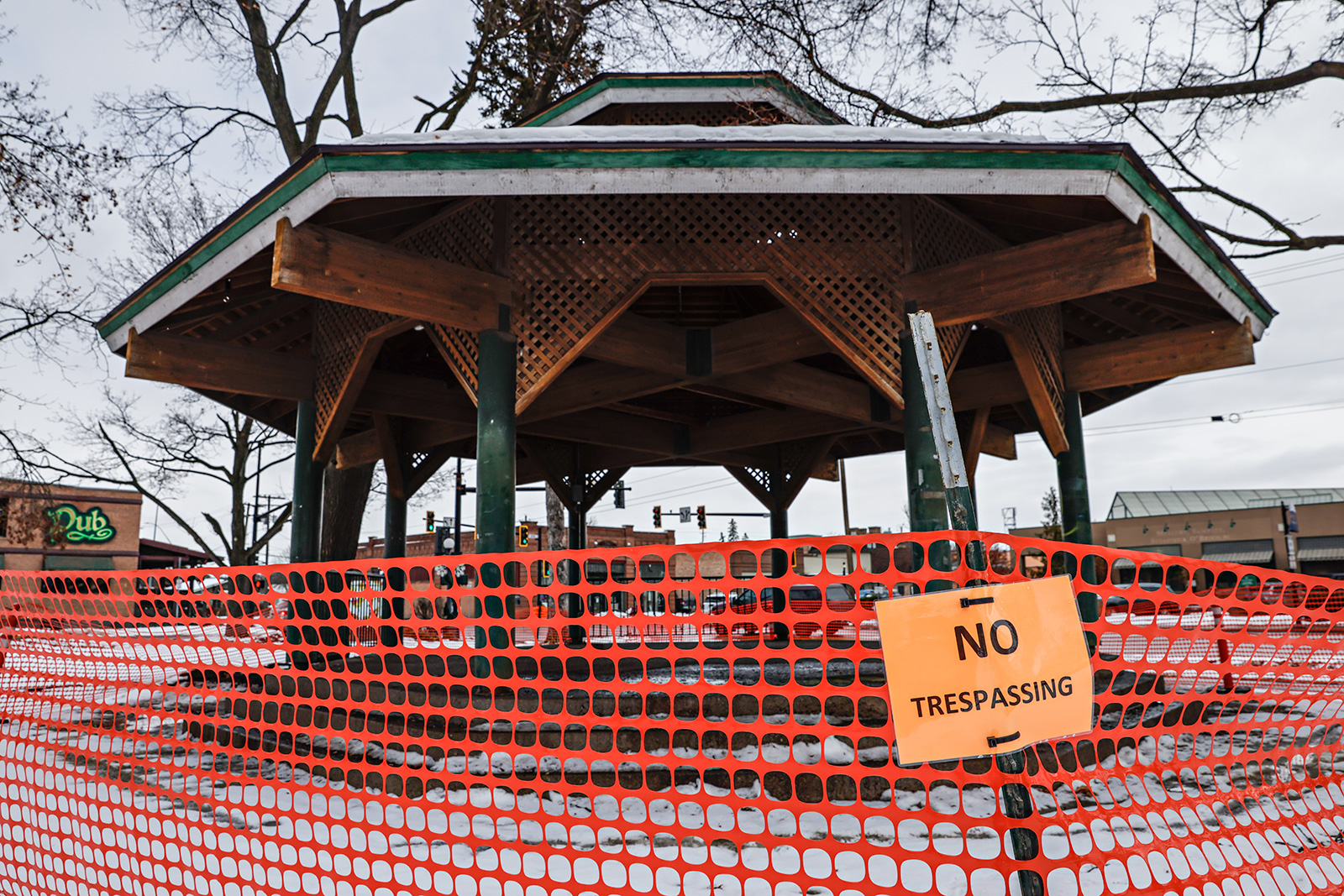Flathead County Commissioners Fault Local Resource Providers for Homeless Crisis
In a Jan. 20 letter, the commissioners claimed that shelters are partially to blame for rising homelessness, prompting pushback from nonprofits
By Denali Sagner
The Flathead County Board of Commissioners on Jan. 20 issued a letter regarding homelessness in the Flathead Valley, in which the commissioners called the valley’s unhoused population “an increasing and distressing problem” and placed part of the blame with local shelters and resource providers for rising homelessness in the area.
In the letter, the commissioners stated that “providing homeless infrastructure has the predictable consequence of attracting more homeless individuals” and that the unhoused population in Kalispell is made up of a “progressive networked community who have made the decision to reject help and live unmoored.” In the days following the letter’s publication, local resource providers have called it a mischaracterization of the valley’s unhoused population, saying that it showed a lack of understanding and an unwillingness to cooperative with local providers by the commissioners.
In the Jan. 20 letter, the county commissioners painted a picture of a “well-networked” web of unhoused individuals who communicate through social media and flock to Kalispell to utilize local resources that “serve their lifestyle.”
“Make no mistake, it is a lifestyle choice for some,” the letter stated. “Although well intended, facilities that offer only shelter, and no accountability, exacerbate the problem.”
The letter went on to encourage community members and city officials to limit the availability of warming shelters for individuals experiencing homelessness.
“It is our hope that our community will be unified in rejecting all things that empower the homeless lifestyle,” the commissioners wrote, adding, “We are asking our peers serving on city councils to not permit or expand warming shelters that bring more of these homeless individuals to our community.”
However, nonprofit leaders said that the reality of homelessness in the valley is much more complicated than the description outlined by the commissioners, and that removing spaces like warming centers will only make the crisis more dire.
“We’re seeing normal, average, stable individuals who, by chance, hit wrong timing in this economy and fell unstable,” Morgan Winchester, co-chair of Collaborative Housing Solutions of Northwest Montana (CHS) and associate director of the Samaritan House told the Beacon. “I think the picture that is painted on who’s homeless in this valley is very inaccurate.”
Tonya Horn, executive director of the Flathead Warming Center, said that the majority of people she serves have roots in the Flathead Valley, and that she has seen no evidence of a complex online network drawing unhoused people to Kalispell. She said she has never heard a story of an unhoused person coming to the Warming Center because they heard about a vibrant homeless community in the Flathead on the internet.
“Homelessness is an issue that is affecting local families, seniors, and individuals with severely disabling conditions who have faced a crisis of medical emergencies, being priced out of rentals, and not being able to access the very limited resources available to them,” the executive board of Collaborative Housing Solutions of Northwest Montana wrote in a response letter on Jan. 20.
Commissioner Brad Abell told the Beacon on Jan. 23 that “the families with children, the ones that are priced out, this isn’t aimed at them at all,” and that rather, the letter was directed at unhoused individuals experiencing “addictions and mental disease.”
“I don’t believe that these are all people who are fighting high rent and who have lost their jobs,” the commissioner said.
Abell specifically cited the groups of unhoused people gathering in locations such as Kalispell’s Depot Park, the county fairgrounds, the post office and Woodland Park. Kalispell city officials on Jan. 18 temporarily closed the gazebo at Depot Park after reports of littering, violent behavior and substance abuse from an encampment of unhoused people there.
Horn and Winchester said they are acutely aware of the mental health and substance abuse crises in the Flathead Valley, phenomena that only make funding community resources like the Warming Center more important. The nonprofit leaders said that blaming individuals for mental illness and addiction while stripping away resources only further stigmatizes these crises and makes it harder for people to get help.
“The county commissioners believe that when people are dealing with mental illness and when people are dealing with addiction, that it is a character flaw,” Horn said. “That is just horrendous.”
While Abell said he would like to see better access to addiction centers in the Flathead Valley, he believes that “it only works to cure that if people finally realize that they want to be cured.”
Horn said that the Warming Center would like to partner with local government, but that county officials have not reached out to her and that she has “heard no solutions coming from the county commissioners.”
Abell said that he does not believe it is the job of government to find solutions to the homelessness crisis, and that he believes the free market will take care of housing issues in the valley.
“I believe that sometimes government can help the best by getting out of the way,” Abell said.
Though the market is beginning to moderate, a pandemic-era housing rush has priced many Flathead Valley residents out of their homes in recent years and has raised housing costs to unprecedented levels. Local nonprofits have seen growing caseloads of elderly people, families with children and veterans who cannot afford housing.
Despite criticisms and claims that the Warming Center is enabling homelessness, Horn said that she has seen an influx of support from the community in light of the letter. As the winter continues, she remains focused on limiting deaths by homelessness and serving the wide array of individuals who pass through the center.
“That is our mission, to save lives,” she said.